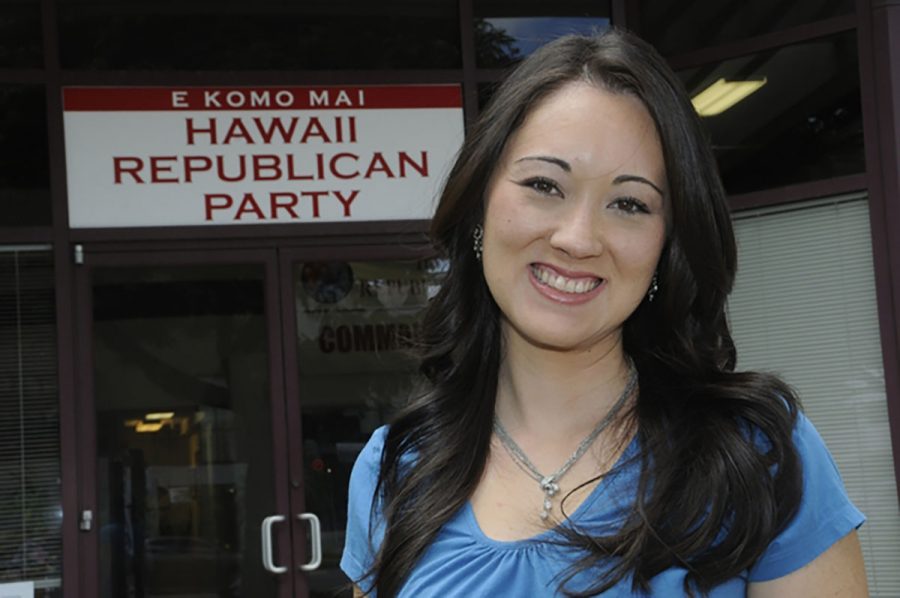Ousting of a Hawaiian lawmaker signals larger problem
After criticizing the president, one lawmaker was voted out of her leadership position and is now considering a change in political parties.
More stories from Hillary Smith
The two-party system in the United States often results in clashes between the Democratic and Republican parties. Now, under the unorthodox leadership and decisions of the Trump administration, political divisiveness is even more prevalent.
A recent situation involving Hawaii Rep. Beth Fukumoto is a prime example of the deepening political divides. After criticizing President Donald J. Trump in a speech she gave at the Women’s March, saying she thought his remarks were “racist and sexist and they had no place in the Republican Party” she was ousted from her leadership position in the statehouse.
In an address to her peers, Fukumoto said she was pressured to resign her seat as House Minority Leader.
“They told me they would keep me in this position if I would commit to not disagreeing with our president for the remainder of his term,” Fukumoto said. “Mr. Speaker, I’m being removed because I refused to make that commitment, because I believe it’s our job as Americans and as leaders in this body to criticize power when power is wrong.”
Ultimately, she was voted out of her seat. Fukumoto then resigned from the Republican Party and is now seeking membership with the Democratic Party in Hawaii.
It is a sad day in the free world when a lawmaker is silenced for speaking against power they believe to be unjust.
There are serious implications that come with removing a lawmaker for disagreeing with the president. Free speech and strong representation are both threatened, and trenches between political parties are dug even deeper, weakening fundamental pillars of democracy.
Political parties should be open to diverse ideas, especially if they are critical of people in high positions of power. If they are not, a key component to the balance of powers will be lost. Furthermore, if a fear of speaking critically of problematic power is instilled in representatives, the voices of citizens will be lost, making the divide between those in power and those not even more pronounced.
It may be reasonable to take issue with Fukumoto looking at flipping her political ideologies by joining the DNC; after all, her constituents voted for her based at least partly on the belief she would be representing primarily Republican-oriented views.
However, the difference between conservative views and Trump’s views should also be considered. Some of his remarks are not in line with the traditional GOP political ideologies. They are, in fact, racist and sexist statements and should not be condoned by any group of people, let alone one of America’s major political parties.
If that is what the GOP is choosing to back, Fukumoto is well within her rights to shift to a party that is more in line not only with her opinions, but the interests of those she is representing as well.
She has reported she sent letters to her constituents asking if she should switch parties.Of the more than 470 letters she received in response, 75 percent were in support of the change.
Fukumo had the right as a politician representing citizens of the United States to voice her criticisms of Trump. However, in removing her from her position as minority seat, other members of the GOP sent a clear message: They are not interested in lawmakers’ opinions if they fail to align with the party.
Now more than ever, lawmakers have a duty to communicate with their constituents and fellow legislators. If bridges of communication and expression of opinions can continue to be built despite resistance, the divisiveness that is so problematic in American politics can begin to be shifted into a functional, productive governing body that is truly representative of the people and the ideologies on which this democratic nation was built.

